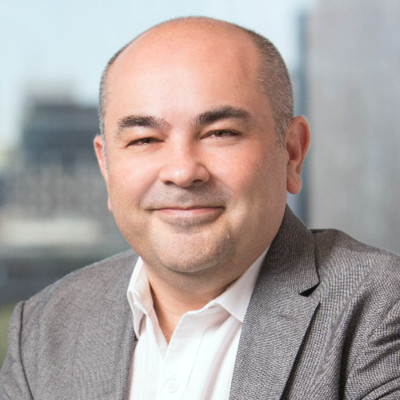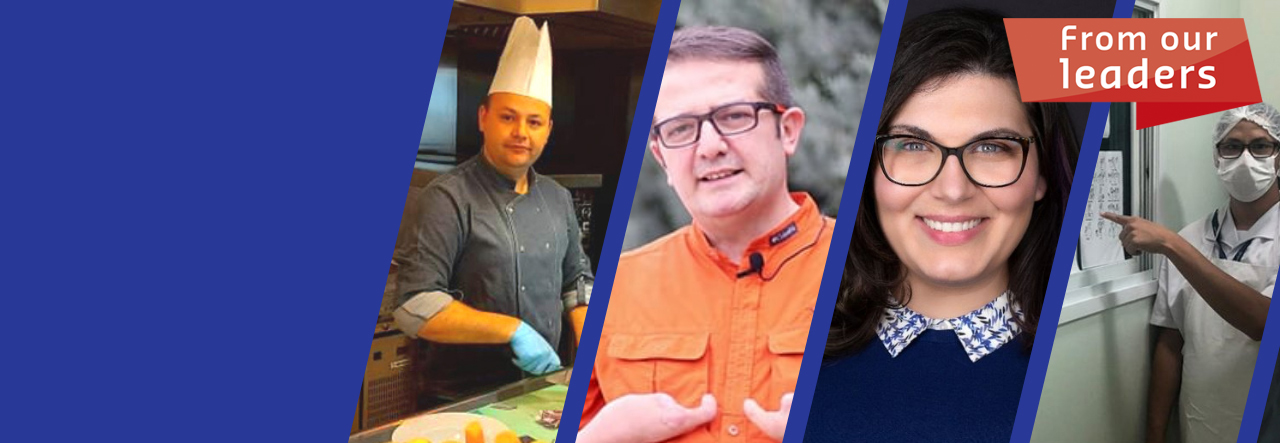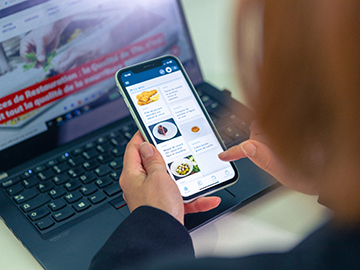Last year, I underwent open heart surgery. I had two extremely rare and life-threatening structural heart conditions. The surgery and the following four months of intensive rehabilitation put significant pressure on me, both physically and mentally.
 It was an emotional roller coaster, which impacted my mental health and my physical ability to do things I’d previously taken for granted.
It was an emotional roller coaster, which impacted my mental health and my physical ability to do things I’d previously taken for granted.
If I’ve learned anything from the experience, it’s an appreciation of how vulnerable we all are and how the things we take for granted can very quickly be taken from us.
In the context of International Day of People with Disabilities, did you know that only 17% of people with disabilities were actually born with their disability?
The remaining majority have developed a disability since birth, with 78% acquiring their impairment after the age of 16.
We are all susceptible to acquiring a disability during our lifetime. Whether it’s a mental health condition, a degenerative problem such as loss of hearing or sight, a neurological disorder or the loss of a limb, it can affect our ability to perform tasks which others might take for granted.
But should that difference in ability affect our opportunity?
Should ability affect opportunity?
At Sodexo, we believe that ability should not restrict opportunity, which is why we’re focused on employing people with disabilities, giving them the training they need to do their job effectively and exposing them to opportunities for growth and career development.
According to the World Health Organisation, one billion people – or 15% of the world’s population – experience some form of disability. They are also more likely to experience adverse socioeconomic outcomes, such as less education, poorer health outcomes, lower levels of unemployment and higher poverty rates.
In fact, according to the United Nations, in developing countries, 80% to 90% of people with disabilities of working age are unemployed. The figure drops to between 50% and 70% in industrialized countries, but in most developed countries, the official unemployment rate for people with disabilities of working age is at least twice that for those who have no disability.
Companies like Sodexo have a duty to ensure employment of people with disabilities is on the agenda and, more importantly, that those employees feel included, valued and part of the team just as much as anyone else.
Supporting local communities
For us, it starts with our local communities. Part of our mission is to contribute to the social, economic and environmental development of the communities in which we operate. By giving a person with a disability an opportunity for a career with Sodexo, we don’t only impact them on an individual level; we also impact their family, their friends and their community.
This is why we actively partner with organisations in our communities to support the employment of people with disabilities. For instance, in China, we partner with iHear to recruit people with hearing disabilities to join our barista training programme. iHear is focused on facilitating communication between people with hearing or speaking disabilities and other members of the public. After successfully completing the training and assessment, they have the opportunity to be placed at Sodexo sites.
And it’s important to point out that we don’t only employ people with disabilities because it’s the right thing to do; we do it because it makes good business sense.
The pandemic has had a major impact on the labour market and companies are in a war for talent. Given the significant numbers of people with disabilities who are unemployed, it is a largely untapped market, which if approached in the right way can generate benefits for companies, people with disabilities and their families.
Approaching it in the right way means not just giving people with disabilities menial tasks. It means giving them an opportunity to thrive and develop new skills; providing training to support career progression; and creating an environment in which they feel included, valued and part of our team.
Stories from colleagues across our business
We have some great stories from across our business that showcase people with disabilities, enjoying successful careers with supportive and inclusive teams…
For example, Ariel, who works in a catering team in Brazil and has a hearing impairment. His colleagues are learning LIBRAS, the Brazilian sign language, to make communication easier.
Andrea is a project management director in the US, who has long suffered social anxiety and depression. Thanks to a supportive manager and understanding colleagues, she feels able to bring her whole self to work and talk openly about the challenges she faces on a daily basis. I’m heartened that one of the few positive outcomes of the COVID19 pandemic has been a greater awareness and social acceptance of invisible disabilities, such as anxiety and depression.
Umit is a site manager in Turkey. He only has one finger on each hand and one toe on each foot, but his disability has not been a barrier to his career growth at Sodexo.
Alan is a cook in Poland, who has hearing difficulties. Once again, he’s surrounded by teammates who are finding ways to ensure communication is not an obstacle.
And, closer to home and my own heart is Ivan. Ivan has autism and is part of the experience team at our Asia Pacific regional office in Singapore. He’s an inspiration to all of us and a valued member of the team.
These stories demonstrate that ability should not hinder opportunity. We all deserve opportunities in life and by employing people with disabilities and focusing on initiatives that drive disability inclusion, we believe we can make a positive impact.
Find out more about our commitment to supporting people with disabilities and Ivan in this video:
Find out more about how we are
This article was created by Johnpaul Dimech, CEO Geographic Regions and Region Chair, Asia Pacific at Sodexo




